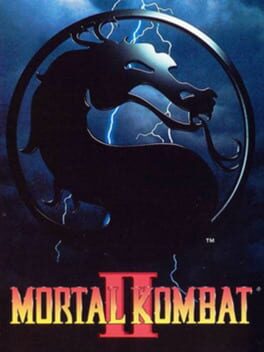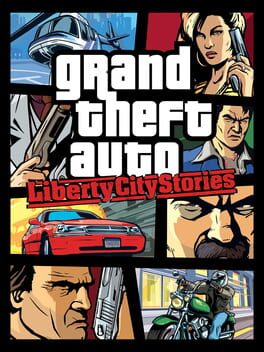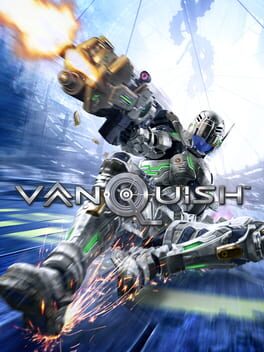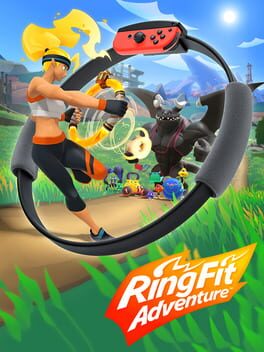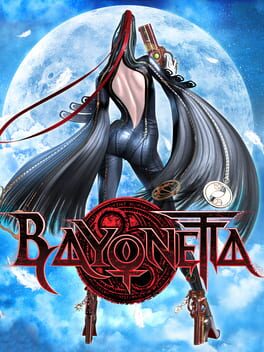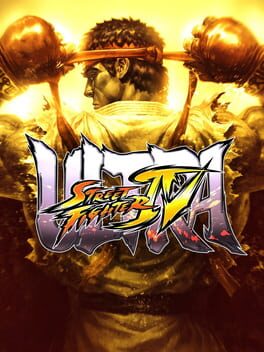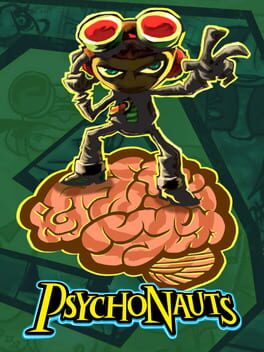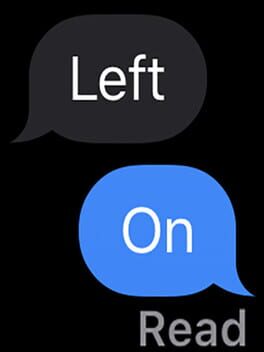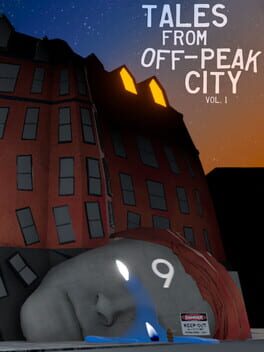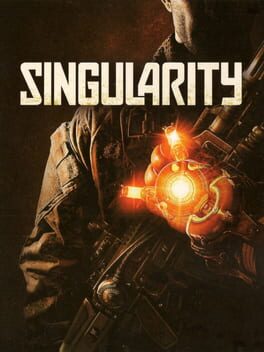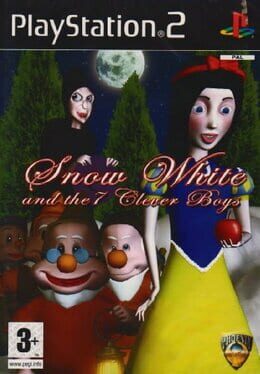DFW_Robbo
131 Reviews liked by DFW_Robbo
Vampire Survivors
2021
Surprised by how little I hate this. On paper, it's pure gunk of a game, all about being a little seratonin plant that stimulates the brain with the fun chemicals by employing the most base level of visual power escalation. It's not just number go up, it's projectile go so Up you can barely see the field anymore. It's all pretty basic stuff, but that's the appeal - a game stripped down to bare essentials, the character arc of a fully-fledged Metroidvania condensed to maybe 30-minute intervals. A thin Roguelite affair with all the trappings that smacks of a Flash golden-era desktop toy. I'm happy to call this game shite, but it's like yelling at a cheap stress ball and I am well aware of the desperate things we do when we have to listen to a podcast. The veneer of Vampire Survivors is pretty hilarious, uses Castlevania's aesthetic right down to stealing monster designs and items and stuff, alongside this unashamed casino spin where you're pulling gatchas from chests and rolling for good pickups. The music and sound effects sound like a pub fruit machine constantly screaming for attention all the while I'm mowing down the devil's legions in gothic castles.
I see the appeal, I really do, but I'm one of those freaks that watches a movie without tearing my eyes off the screen to blink. Stripping down a game to the point where it is nothing but mechanical gratification isn't my thing, I just need the narrative thrust or linear hand-crafted oven-cooked pomp and care or else a game just loses me and I forget it the moment it exits my peripheral. If I was a kid that had to pretend to do work in IT class in the year of our lord 2022 this would probably be my go-to, but I was definitely better off doing the same with Warning Forever.
I see the appeal, I really do, but I'm one of those freaks that watches a movie without tearing my eyes off the screen to blink. Stripping down a game to the point where it is nothing but mechanical gratification isn't my thing, I just need the narrative thrust or linear hand-crafted oven-cooked pomp and care or else a game just loses me and I forget it the moment it exits my peripheral. If I was a kid that had to pretend to do work in IT class in the year of our lord 2022 this would probably be my go-to, but I was definitely better off doing the same with Warning Forever.
Mortal Kombat II
1993
Vanquish
2010
The beginnings of a fantastic action game. The campaign needed a little more time in the oven but the score system is tight and the guns feel fun to use. I feel the boost mechanic could have been tweaked a little bit since it's a little annoying to have to save your sick melee moves for when you know there aren't too many enemies left since you instantly lose boost upon activating. Maybe there's some hidden mechanics I haven't had the time to try out yet - I haven't tried learning this as deeply as other Platinum releases to be fair.
Lost my shit at the obvious Hillary Clinton stand-in killing herself. Only a Japanese game tackling American politics would think to do that - further reading: Metal Gear Rising.
Lost my shit at the obvious Hillary Clinton stand-in killing herself. Only a Japanese game tackling American politics would think to do that - further reading: Metal Gear Rising.
Control
2019
The story is weak, I wish there was more to Jesse Faden, wish she was going through more, had more character. But the world of the Federal Bureau of Control is pure madness and both very cool and very amusing. The gameplay of Control is also quite fun and I have to say the world building and gameplay make this game great despite the weak main character.
Ring Fit Adventure
2019
The coolest thing about this game is that the act of finishing it is a smokescreen. If you actually went all the way to the end, and did everything, I salute you, but the real point for most is to stop playing the campaign and pretty much spend all your time using the custom workouts or something that feels right for you. To go at your own pace.
The amazing heartfelt purpose is simply to establish a routine, pushing you on, congratulating you, giving tool tips and etc. just to get you into a workout mindset. With enough body positivity I was able to come back and establish what I need to do, giving myself a full regimen to stick to for the past week or so now. The gamey part falls away, now earnestly happy to just let you use it to your heart's content. Feels great.
The amazing heartfelt purpose is simply to establish a routine, pushing you on, congratulating you, giving tool tips and etc. just to get you into a workout mindset. With enough body positivity I was able to come back and establish what I need to do, giving myself a full regimen to stick to for the past week or so now. The gamey part falls away, now earnestly happy to just let you use it to your heart's content. Feels great.
Elden Ring
2022
elden ring is from software arriving to save aaa gaming from itself yet again. as they did in the seventh gen with Dark Souls (to a lesser extent Demon's Souls as well but that game never reached the same status, but it does a lot of the same stuff. the gamble of console exclusives i suppose...), from has ripped away the comforts and the pablum from gaming at its most mainstream. this time focused with laser intent on stripping as much comfort from the open world action role playing computer games in many of the same ways that dark souls did the more linear action roleplaying game two generations before it. this is only barely exaggeration and the "new fromsoft game" jitters speaking here, i sincerely believe this game saved games from themselves once again.
open world games are in general excrutiatingly boring chore simulators that don't do much to excite any part of the brain besides the part that finds filling out lists fun. office drone twitter bluecheck freaks make these sorts of games for each other now game design's rules and laws are so firmly etched into our brains. hands must be held, stories must do thing a to subvert expectation b to reveal it's actually about (reader's choice: mental health, liberal politics, """""trauma""""). this isn't to say all open world games are this way, but one needs only look at what was supposed to be spring 22's big show pony horizon forbidden west to get a decent grip on what these games are. total ubisoftification to sell guaranteed x amount of copies to please y shareholders and guarantee z biyearly sequels that are each a little bit worse than the last one. (remember when far cry was good!?)
fromsoft has very little interest in doing anything related to that. there is no checklist of things to do, you either stumble onto the sidequests naturally or consult with the vast droves of online help and collaborate with others to solve these things. i don't want to get into spoilers but i'm glad from has continued the tradition of having a "true ending" that tells the journey you're player is going on to fuck off brought about by doing the absolute most to see how putrid the world the player inhabits is.
and this world is putrid. much like boletaria, lordran, drangleic, yharnam and sengoku(?) era japan before it, the world the player is given almost carte blanche to fuck about in is one just about nose-deep into the process of dying. whatever military or political powers inhabited it have no real control, they all seem to have fought every conceivable war they could come up with and have reached comfortably blocked-off stasis. in this state, the only thing left for anybody to do is die and then come back and then die and then come back until their killer loses interest. this is, as we all know, incredibly fucking raw. elden ring's world, the lands between, doubles down as the atmosphere and dread by pulling every one of fromsoft's trick and doing something new with it or iterating on it in a meaningful way.
to (lightly) spoil an early game area, the player is tasked with entering into and then killing the deity that ruled a school that sought forbidden knowledge regarding undeath where its scholars were driven mad or used for cruel experimentation (i think, item descriptions and reading the general air of the area as war machines and and mad sorcerers dot the area only tell me so much). this isn't really anything new for fromsoft, but it all still feels really fresh. partially because it's just a fucking raw idea and partially because it's paced pretty briskly, so you're only given the killer that might've ended up as filler if it were as long as a dark souls or sekiro stage is. ending with a puzzle boss was a no-brainer, but then turning that boss into a real fight that's pretty challenging and fun hits all the right notes here. it's nothing new, but it doesn't need to be when it's this good.
these legacy dungeons are amazing, but for the most part they are used to break up the exploration for the first two acts of the game. the real meat is the near infinite amount of things to find in the game. some of it doesn't add up to much, i've found abandoned fortresses that seemed to be going somewhere only to be quick excursions clocking in at under an hour. but some of it is huge. there are few moments in games that i can think of that took me by complete surprise as the underground portion of the map. at first it just seems to be a themed dungeon, but slowly it becomes almost an entire second open world, complete with its own subareas and dungeons. games rarely feel this deep, like you can kick over the cardboard standee and find something real behind it and not just dead air. i'm going to predict this moment is pivotal to a new generation of developer's understanding of world and level design, much like so much of dark souls was for its own generation (can't believe it's been 10 years...)
combat. it's good. souls combat rocks. i wish it was faster, as always. i liked how post-dark souls 2 a big goal for fromsoft seemed to be how fast they could pace the combat and have the player keep up. bloodborne and sekiro especially are constantly riding the edge of what is possibly too fast for the player to respond to, and elden ring follows a similar path. it's much closer to dark souls iii than sekiro or bloodborne, which i think everyone was expecting but maybe not everyone wanted. thankfully the game is firing on all cylinders and starts the boss difficulty around the prior game's midpoint and ratchets it up from there pretty quickly. while nothing quite hits the dizzying heights as clashing swords with isshin or nimbly moving through orphan of kos' infantile rage, a lot of bosses are on a similar level in their own ways. the final optional boss, one the game has used in a great deal of promotional material, feels like if artorias was upgraded and tweaked without feeling as masturbatory as gael was when it attempted similar things in the das3 dlc
it's nice that skills soft cap a little differently in this one, it was fun to have a melee oriented character that could dabble a little in faith and int with the freed up skill points. not much to add here but it also makes me excited to see the pvp meta even if i didnt touch it in this one.
most of the new stuff feels as tertiary as players want it to be. i didn't touch spirit ashes until endgame but when i did i liked what i saw. the one that just gives you a clone is sick, even if it's completely fucking broken. but breaking souls games is its own fun, so no harm done. can just not use it, obviously.
its crazy that fromsoft was able to move in a direction that feels appealing to diehard souls guys while still honestly feeling the most approachable a souls game has ever been. this whole game is the work of geniuses firing on all cylinders pumping out shit to put most everything released in the mainstream to shame, and i think it's going to be a pivotal moment in the whole history of gaming much like dark souls was. it's a panacea for the doldrums this gen is offering up so far, and it shows that games by committee aren't as infallible and foolproof as they'd like to think themselves as. this is going to sell 30 million copies, the tone is set. the stagnation is gone, the hollowing undone, the humanity restored and the grace returned.
open world games are in general excrutiatingly boring chore simulators that don't do much to excite any part of the brain besides the part that finds filling out lists fun. office drone twitter bluecheck freaks make these sorts of games for each other now game design's rules and laws are so firmly etched into our brains. hands must be held, stories must do thing a to subvert expectation b to reveal it's actually about (reader's choice: mental health, liberal politics, """""trauma""""). this isn't to say all open world games are this way, but one needs only look at what was supposed to be spring 22's big show pony horizon forbidden west to get a decent grip on what these games are. total ubisoftification to sell guaranteed x amount of copies to please y shareholders and guarantee z biyearly sequels that are each a little bit worse than the last one. (remember when far cry was good!?)
fromsoft has very little interest in doing anything related to that. there is no checklist of things to do, you either stumble onto the sidequests naturally or consult with the vast droves of online help and collaborate with others to solve these things. i don't want to get into spoilers but i'm glad from has continued the tradition of having a "true ending" that tells the journey you're player is going on to fuck off brought about by doing the absolute most to see how putrid the world the player inhabits is.
and this world is putrid. much like boletaria, lordran, drangleic, yharnam and sengoku(?) era japan before it, the world the player is given almost carte blanche to fuck about in is one just about nose-deep into the process of dying. whatever military or political powers inhabited it have no real control, they all seem to have fought every conceivable war they could come up with and have reached comfortably blocked-off stasis. in this state, the only thing left for anybody to do is die and then come back and then die and then come back until their killer loses interest. this is, as we all know, incredibly fucking raw. elden ring's world, the lands between, doubles down as the atmosphere and dread by pulling every one of fromsoft's trick and doing something new with it or iterating on it in a meaningful way.
to (lightly) spoil an early game area, the player is tasked with entering into and then killing the deity that ruled a school that sought forbidden knowledge regarding undeath where its scholars were driven mad or used for cruel experimentation (i think, item descriptions and reading the general air of the area as war machines and and mad sorcerers dot the area only tell me so much). this isn't really anything new for fromsoft, but it all still feels really fresh. partially because it's just a fucking raw idea and partially because it's paced pretty briskly, so you're only given the killer that might've ended up as filler if it were as long as a dark souls or sekiro stage is. ending with a puzzle boss was a no-brainer, but then turning that boss into a real fight that's pretty challenging and fun hits all the right notes here. it's nothing new, but it doesn't need to be when it's this good.
these legacy dungeons are amazing, but for the most part they are used to break up the exploration for the first two acts of the game. the real meat is the near infinite amount of things to find in the game. some of it doesn't add up to much, i've found abandoned fortresses that seemed to be going somewhere only to be quick excursions clocking in at under an hour. but some of it is huge. there are few moments in games that i can think of that took me by complete surprise as the underground portion of the map. at first it just seems to be a themed dungeon, but slowly it becomes almost an entire second open world, complete with its own subareas and dungeons. games rarely feel this deep, like you can kick over the cardboard standee and find something real behind it and not just dead air. i'm going to predict this moment is pivotal to a new generation of developer's understanding of world and level design, much like so much of dark souls was for its own generation (can't believe it's been 10 years...)
combat. it's good. souls combat rocks. i wish it was faster, as always. i liked how post-dark souls 2 a big goal for fromsoft seemed to be how fast they could pace the combat and have the player keep up. bloodborne and sekiro especially are constantly riding the edge of what is possibly too fast for the player to respond to, and elden ring follows a similar path. it's much closer to dark souls iii than sekiro or bloodborne, which i think everyone was expecting but maybe not everyone wanted. thankfully the game is firing on all cylinders and starts the boss difficulty around the prior game's midpoint and ratchets it up from there pretty quickly. while nothing quite hits the dizzying heights as clashing swords with isshin or nimbly moving through orphan of kos' infantile rage, a lot of bosses are on a similar level in their own ways. the final optional boss, one the game has used in a great deal of promotional material, feels like if artorias was upgraded and tweaked without feeling as masturbatory as gael was when it attempted similar things in the das3 dlc
it's nice that skills soft cap a little differently in this one, it was fun to have a melee oriented character that could dabble a little in faith and int with the freed up skill points. not much to add here but it also makes me excited to see the pvp meta even if i didnt touch it in this one.
most of the new stuff feels as tertiary as players want it to be. i didn't touch spirit ashes until endgame but when i did i liked what i saw. the one that just gives you a clone is sick, even if it's completely fucking broken. but breaking souls games is its own fun, so no harm done. can just not use it, obviously.
its crazy that fromsoft was able to move in a direction that feels appealing to diehard souls guys while still honestly feeling the most approachable a souls game has ever been. this whole game is the work of geniuses firing on all cylinders pumping out shit to put most everything released in the mainstream to shame, and i think it's going to be a pivotal moment in the whole history of gaming much like dark souls was. it's a panacea for the doldrums this gen is offering up so far, and it shows that games by committee aren't as infallible and foolproof as they'd like to think themselves as. this is going to sell 30 million copies, the tone is set. the stagnation is gone, the hollowing undone, the humanity restored and the grace returned.
Bayonetta
2009
The surface charm of Bayonetta, a hypersexualized spectacle, belies a sadistic seduction, the pinnacle of character action gameplay gate-kept by the genre's tradition of ball-busting difficulty. Taking after it's spindly namesake, the game by nature is a sort of dominatrix, stomping you down into the dirt and cracking the whip at your attempts to fight back. It's brutal, frustrating, agonizing to watch as your nerves fray and senses dull, with each encounter providing a fresh boot to the teeth. Broken, battered and bruised, you look for solace, only to be greeted with a stone-cold consolation prize for your struggles. Against the crushing odds, each step becomes heavier, each mistimed strike putting you at the whims of Heaven and Hell alike. Hours pass, anger boils over, resentment turns to fascination… and the highlight of any character action game, the most brilliant of afterglows, shines clearly – the flow state: the melding of mind and body, attuned to the same frequency for a singular purpose. Free from your submission to unceasing cruelty, you take the reigns as a domineering hellion, a unholy agent of divine retribution against the legions of Heaven's army.
Unshackled from preconceived notions, Bayonetta's essence breaths uninterrupted. PlatinumGames's masterwork is informed by the inescapable interplay of sex and violence; the first glance at Bayonetta herself can tell you that. But despite the game's seemingly adolescent pandering, there burns a heart of rebellion within the work, a feminist bend buried under the suffocating weight of the social gaming sphere circa 2009. The duality of Bayonetta, as sex-positive icon of empowerment versus gross exploitation of sexuality, is ingrained into every aspect of her.
This is to say that, despite the obvious trashiness inherent to the game, the blatant fanservice and standard anime bullshit lacing the game, it's hard not to see a extreme version of myself I'd want to see: a hyper-femme confidence elemental, a perfect beauty that defines human limitation, a plain-and-simple unstoppable bad-ass. Dare I say, with every tasteless shot and embarrassing line in consideration, that Bayonetta is, in fact, transition goals?
In a way, Bayonetta represents an "ideal", a splinter of me shattered and scattered across a million separate works. But with this knowledge in mind, it's difficult not to feel slightly conflicted: after all, the character exists as an amalgamation of Hideki Kamiya's fetishes and fantasies, a woman that literally lives to please a man. For all my desires to view her as some new-age feminist idol, she is a personification of the objectification of women in gaming. I suppose it's only fair to invision her divorced from her initial context, a messy reimagining to fit her into an even messier personal image. Consider it me embracing another odd inspiration into an increasingly messy queer narrative.
The scandalous spirit of Bayonetta is, at the same time, its most beautiful and most reprehensible quality. Without it, it would stand as a husk, mechanically interesting, but without a soul to prop it up. In equal senses, it's the exact reason I recommend and shy away from suggesting the game; it represents a part of me, while also being an element I'm somewhat ashamed to admit to. Needless to say… this game feels essential. Whether it clicks with you on an individual level or not, you owe it to yourself to try it.
Unshackled from preconceived notions, Bayonetta's essence breaths uninterrupted. PlatinumGames's masterwork is informed by the inescapable interplay of sex and violence; the first glance at Bayonetta herself can tell you that. But despite the game's seemingly adolescent pandering, there burns a heart of rebellion within the work, a feminist bend buried under the suffocating weight of the social gaming sphere circa 2009. The duality of Bayonetta, as sex-positive icon of empowerment versus gross exploitation of sexuality, is ingrained into every aspect of her.
This is to say that, despite the obvious trashiness inherent to the game, the blatant fanservice and standard anime bullshit lacing the game, it's hard not to see a extreme version of myself I'd want to see: a hyper-femme confidence elemental, a perfect beauty that defines human limitation, a plain-and-simple unstoppable bad-ass. Dare I say, with every tasteless shot and embarrassing line in consideration, that Bayonetta is, in fact, transition goals?
In a way, Bayonetta represents an "ideal", a splinter of me shattered and scattered across a million separate works. But with this knowledge in mind, it's difficult not to feel slightly conflicted: after all, the character exists as an amalgamation of Hideki Kamiya's fetishes and fantasies, a woman that literally lives to please a man. For all my desires to view her as some new-age feminist idol, she is a personification of the objectification of women in gaming. I suppose it's only fair to invision her divorced from her initial context, a messy reimagining to fit her into an even messier personal image. Consider it me embracing another odd inspiration into an increasingly messy queer narrative.
The scandalous spirit of Bayonetta is, at the same time, its most beautiful and most reprehensible quality. Without it, it would stand as a husk, mechanically interesting, but without a soul to prop it up. In equal senses, it's the exact reason I recommend and shy away from suggesting the game; it represents a part of me, while also being an element I'm somewhat ashamed to admit to. Needless to say… this game feels essential. Whether it clicks with you on an individual level or not, you owe it to yourself to try it.
Psychonauts
2005
the most "2000s cartoon network" videogame ever made (probably). i cannot imagine this game being made today, it has such billy & mandy type of humor and when the conspiracy hits is just like, KND movie levels of nonsense and paranoia (zombies that are actually old people (everyone is afraid of old people, i guess?)). just real clever writing, with good timing for comedy while showing a lot of different mental illness and traumas with a bit of dark humor here and there, but never losing sensibility (not the same you would see in today's games like celeste, but still!! (and to be honest, this approach feels better for my tastes)). the main character, raz, is very well developed and his character arc is concluded in the most unexpected way. love the whole contextualization of "videogame things" into mind-things, i.e, your health bar being "mental health" and your power being medium powers (im surprised i've not seen a joke about bending spoons) and stuff you see in cold war media (btw, is this game happening in the 60s? 70s?). the gameplay being janky as it is and some levels being a little frustrating just helps with the comfy-yet-menacing vibes and the whole mean comedy it has. some of the levels are, by the way, one of the best i've ever seen in a videogame -- milkman's conspiracy is just such an engaging story and meat circus is at bowser's castle from super mario 64 level of "utilizing everything you've learned from the game" (while being a scout mission, too!). really like how the camp is a whole place and not a mini HUB -- love when games with levels have a way of locomotion between them, makes the world feels more real and is crazy the amount of, cough, "lore" it has -- hidden stories about the other kids in the camp or bizarre things that you may encounter soon but, until there, is just legend. the kids, by the way, really act like 10~13 years old kids: they are starting to fell in love with each other, talking about "making out" but still have both meanness and innocence a kid has -- you can see this in raz own character, like how he reacts to some of the adults problems while you can totally relate to them, but is still gentle and helps in the way he can.
is just. a really good game.
is just. a really good game.
Left on Read
2020
Dudes will start a conversation with this shit in 2020 and wonder why they were left on read.
Singularity
2010
Lost in the nebulous space between the soulless flair of the modern military shooter and the heartfelt kitsch of the retro “classic” shooter, the shooters of the late 2000s and early 2010s were inspired in equal measures by the all-encompassing pop-fervor of Call of Duty: Modern Warfare and the deteriorated foundation build by the likes of Doom and Quake. Spurred by the overwhelming presence of Infinity Ward’s absurdly influential franchise, alongside a legion of like-minded contemporaries, Activision sought out a greedy double-dip. As one of their franchises altered the landscape of first-person shooters, the company dug into the established market with a new project cobbled together with the essence of their largest releases, a faceless, amorphous summer blockbuster with the capitalistic purpose of scoring big returns on a low investment. With emotion and heart out the door, and with eye’s on the dollar, Activision tasked Raven Software, longtime icons of the first-person shooter genre, with concocting this husk of a game. Unfortunately for Activision, their wishes for a quick-and-easy turnaround crashed headlong into the creative might of an exemplar of the industry. Budgets ebbed and flowed, deadlines came and went, and the tumultuous project underwent a lengthy stay in development hell.
The shambling corpse, a patchwork of Bioshock, Half-Life 2, F.E.A.R., and everyone’s favorite yearly jingoist genocide simulator, languished in limbo for years under the overbearing boot of Activision until the dawn of the 2010s. Finally free from the eternal prison of middle-management and executive meddling, Singularity sprung forth, bearing the influence of its progenitors on it’s sleeve. Alas, as the game rose to life, so too did it sign a death sentence for Raven Software, now a prisoner to the Call of Duty mines. With its wretched history behind it, and a decade after the fact, how does it hold up under scrutiny?
It’s uh… It’s mid. Maybe it’s the whole “copy the middle points of a hundred other games” thing, maybe it’s the complete lack of personality present, or perhaps it’s the feel of a weary dev team trying their hardest to make anything out of the nothing they’ve been handed. It’s a multi-million dollar project informed not by its own original ideas, but by the constant struggle to do anything original with the ideas it was made to encompass. Fuse that obvious discontent with a development cycle that could charitably be called trouble, and it’s no wonder the game came out in such a half-baked, malformed state. It should say something that the high point of the game was a Russian scientist claiming the way to prevent this broken timeline was very LowTierGod-ian, a succinct “you should kill yourself…now!”. As the game lays broken and rightfully forgotten to the sands of time, I’m drawn not to the game itself, but what it represents. To put it clearly, Singularity is the embodiment of the soullessness, the abject emptiness inherent to triple-A game development.
While not itself guilty of the crimes it represents, the game is a sacrifice to the altar of auteur theory, prestige media, and big-screen hollowness. It’s a game defined not by what it does, but what it’s corporate malefactors did to it in the name of creating a product for the mass market. Singularity breaths deep the fumes of Hollywood action cinema, and hacks out a dull, lifeless imitation. Resting inside the game there’s the shell of something wonderful, a grindhouse alternative history shooting gallery, and during succinct moments that beauty shines through, particularly in some of the truly inspired tools granted to the player to expense with wave-after-wave of Russian soldiers and mutated radiological monstrosities, but surrounding every second of that perfection is a curtain sewn with the express point of snuffing out whatever original light shines from within. Short and simple, it’s a game that, with more time, more care, more love, could have been something special: not influential or astounding, but more than the mediocre slog it devolved into.
The shambling corpse, a patchwork of Bioshock, Half-Life 2, F.E.A.R., and everyone’s favorite yearly jingoist genocide simulator, languished in limbo for years under the overbearing boot of Activision until the dawn of the 2010s. Finally free from the eternal prison of middle-management and executive meddling, Singularity sprung forth, bearing the influence of its progenitors on it’s sleeve. Alas, as the game rose to life, so too did it sign a death sentence for Raven Software, now a prisoner to the Call of Duty mines. With its wretched history behind it, and a decade after the fact, how does it hold up under scrutiny?
It’s uh… It’s mid. Maybe it’s the whole “copy the middle points of a hundred other games” thing, maybe it’s the complete lack of personality present, or perhaps it’s the feel of a weary dev team trying their hardest to make anything out of the nothing they’ve been handed. It’s a multi-million dollar project informed not by its own original ideas, but by the constant struggle to do anything original with the ideas it was made to encompass. Fuse that obvious discontent with a development cycle that could charitably be called trouble, and it’s no wonder the game came out in such a half-baked, malformed state. It should say something that the high point of the game was a Russian scientist claiming the way to prevent this broken timeline was very LowTierGod-ian, a succinct “you should kill yourself…now!”. As the game lays broken and rightfully forgotten to the sands of time, I’m drawn not to the game itself, but what it represents. To put it clearly, Singularity is the embodiment of the soullessness, the abject emptiness inherent to triple-A game development.
While not itself guilty of the crimes it represents, the game is a sacrifice to the altar of auteur theory, prestige media, and big-screen hollowness. It’s a game defined not by what it does, but what it’s corporate malefactors did to it in the name of creating a product for the mass market. Singularity breaths deep the fumes of Hollywood action cinema, and hacks out a dull, lifeless imitation. Resting inside the game there’s the shell of something wonderful, a grindhouse alternative history shooting gallery, and during succinct moments that beauty shines through, particularly in some of the truly inspired tools granted to the player to expense with wave-after-wave of Russian soldiers and mutated radiological monstrosities, but surrounding every second of that perfection is a curtain sewn with the express point of snuffing out whatever original light shines from within. Short and simple, it’s a game that, with more time, more care, more love, could have been something special: not influential or astounding, but more than the mediocre slog it devolved into.

